Latest News
26 September 2018
TU Delft rises in THE ranking

TU Delft is 58th in the global Times Higher Education (THE) Ranking this year, an increase of five places.
26 September 2018
Two TU Delft proposals chosen to compete in ESA Earth Explorer mission
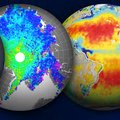
TU Delft has provided two of the three proposals that are competing for the tenth Earth Explorer mission by ESA, which is planned for 2027-2028. The Earth Explorer missions are aimed at Earth observation, one of the important aims of the European Space Agency (ESA).
25 September 2018
Opening of Ruisdael Observatory

The Ruisdael Observatory – named after the 17th-century painter Jacob van Ruisdael – combines a nationwide dense network of measuring points with high-resolution simulations and the necessary computing power in order to map out changes in local weather, air quality and climate. The official opening of the observatory is on 27 September, with a meeting in the grounds of the KNMI measuring station at Cabauw (Cabauw Experimental Site for Atmospheric Research, CESAR). In April this new top-class research facility was awarded a certificate from NWO’s National Roadmap for Large-Scale Scientific infrastructure.
24 September 2018
Delft drone tests new sense-and-avoid technology in Australian outback
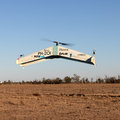
Researchers at Delft University of Technology (TU Delft) have developed new technology that enables a drone to record all stationary and moving objects (such as trees, masts, birds of prey, helicopters) during autonomous flight and continuously alter its flight path to avoid them.
20 September 2018
Nuon Solar Team achieves 2nd starting position
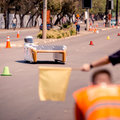
Last Wednesday, at the qualification for the starting position at the Sasol Solar Challenge 2018 in South Africa, the Japanese were just one second quicker than the Nuon Solar Team. So the Dutch team will start at Saturday 22 September, with their solar car Nuna9S, on the second position.
18 September 2018
Delft researchers push the boundaries of optical microscopy

The field of optical microscopy research has developed rapidly in recent years. Thanks to the invention of a technique called super-resolution fluorescence microscopy, it has recently become possible to view even the smaller parts of a living cell. Now, by making a smart refinement to that technique, researchers at TU Delft have pushed its boundaries even further. Where previously objects measuring up to 10-20 nanometres could be observed, their method makes it possible to focus on structures of as tiny as 3 nanometres across.
16 September 2018
Students win world championship with high-tech recumbent bike
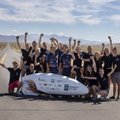
Cyclist Lieke de Cock won the world championship for cycling in the Nevada desert in the US with a speed of 120 km/h.
14 September 2018
New Netherlands Code of Conduct for Research Integrity
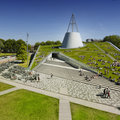
Today sees the launch of the new version of the Netherlands Code of Conduct for Academic Integrity. This new version revises and expands on the code of conduct first introduced in 2004, reflecting international developments in the field of academic integrity that have taken place since then.
13 September 2018
Novel flying robot mimics rapid insect flight
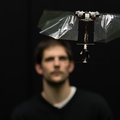
A novel insect-inspired flying robot, developed by TU Delft researchers from the Micro Air Vehicle Laboratory (MAVLab), has been presented in Science (14 September 2018).
12 September 2018
NWO Spinoza Prize for Delft bionanoscientist Marileen Dogterom
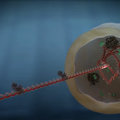
Marileen Dogterom, Professor of Bionanoscience at TU Delft, has been awarded the NWO Spinoza Prize; the highest award in Dutch science. Dogterom carries out research into the dynamics in living cells and leads a consortium which is aiming to build an entirely artificial cell.
